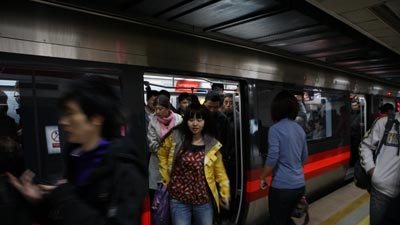From May 13 to 15, 2013, the World Bank and the Nanchang Municipal Government held an international workshop on “Land Value Capture for Transit” in Nanchang, Jiangxi Province, to share international good practices in the application of land value capture instruments for mass transit projects, mainly based on the experiences of Hong Kong Metro Corporation and Japanese railway companies. The participants exchanged views on the design and implementation of land value capture programs in the context of Nanchang’s urban rail development scheme.
The workshop was attended by Vice Mayor Wei Gao and officials from Nanchang municipal government including the local planning bureau, land resources bureau, finance bureau and urban rail company, as well as experts from the Massachusetts Institute of Technology, City University of Hong Kong, Hong Kong MTR Corporation, Nikken Sekkei, Ltd and the World Bank.
The discussions focused on how to maximize the land value increase resulting from the introduction of urban rail both to recoup the capital investment costs and to finance recurrent expenditures in a sustainable manner and how to achieve Transit Oriented Development by coordinating real estate development with urban rail development .
As the 23rd city in mainland China to receive approval for urban rail construction, Nanchang has been actively learning the lessons from other cities in and outside China. Nanchang has planned its urban rail system as part of a broad “metro + community” development approach.
“The vision is to establish comprehensive communities surrounding the metro stations with multiple functions to serve the residents’ needs, thus maximizing the benefits of the urban rail project and associated land value”, said Vice Mayor Gao at the workshop.
Vice Mayor Gao welcomed the World Bank team to carry out discussions and studies in Nanchang regarding the topic of land value capture and expressed his expectation that the successful international experiences could be replicated and localized to the Nanchang context with the support from the World Bank team.
The city of Nanchang has endorsed the concepts of transit oriented development and land value capture. Converting these concepts into reality as effectively as possible remains nonetheless a challenge. This will require creating articulated densities within the city, with higher densities near major metro stations, as well as careful integration of urban development projects with the construction of the urban rail system. It will require ensuring easy access to those stations by pedestrians, bikes and feeder buses, through close attention to the quality of design. International experience shows that these can only be achieved through close coordination among governmental departments, the urban rail company and experienced developers.
The results of the discussions during the workshop will be captured as part of a Guidebook on Development -based Land Value Capture for Transit and contribute to TransFORM, the first pilot under the China-World Bank Knowledge Hub.

